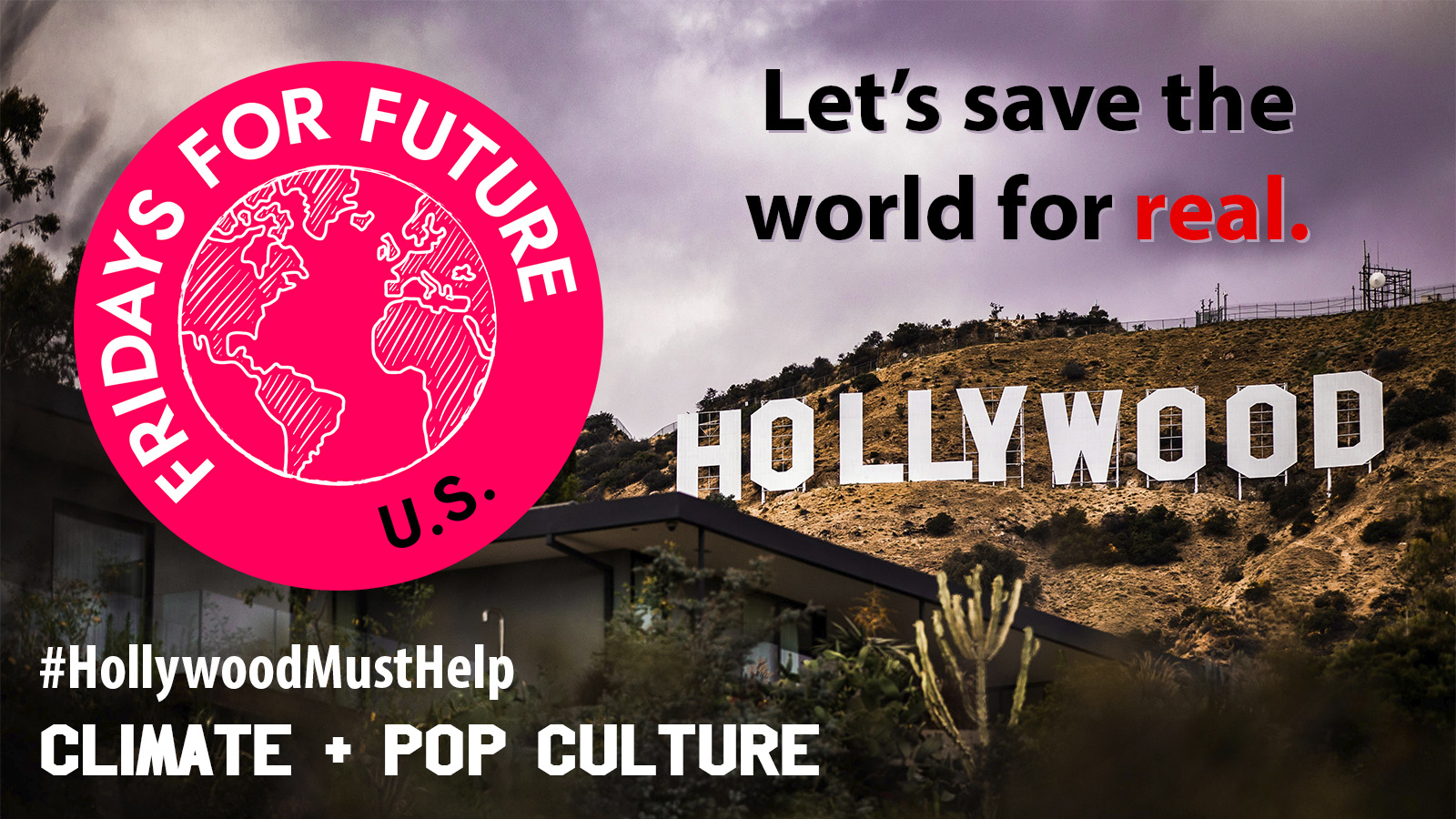Hollywood Must Help on Climate Change & Stop Damaging the Environmental Movement
The top executives of Hollywood's major film studios: Disney, Warner Bros, Universal, Paramount, Columbia, Netflix & Amazon

Hollywood films are a powerful cultural force that can shape and shift public attitudes and behaviors on real-world issues. On climate change, the release of the 2004 disaster movie, The Day After Tomorrow, led audiences to develop higher levels of concern about global warming as well as a better understanding of the climate system. Despite some scientific missteps, the film successfully encouraged viewers to engage in personal, political and social action to address the crisis. Many years later, when climate documentaries are increasingly preaching to the choir, scientists have called on the entertainment industry to step up and do more. Storytellers evidently have a big role to play in the climate movement.
However, Hollywood is still relatively quiet on the climate crisis. When climate change does appear in a film nowadays, the issue is typically relegated to a subtle and inconsequential thematic layer, or reduced to an apocalyptic or dystopian backdrop in a faraway time. Worse still is a growing trend among popular movies to misrepresent the environmental movement as the misguided cause of an unsympathetic villain, before celebrating the restoration of the status quo as the endpoint of the story. This promotes the misleading idea that environmentalists are extremists who must be silenced, and that business-as-usual is best. It ultimately undermines and damages the climate movement.
Stories that involve climate change don't need to commit these errors to be entertaining. With the
support of climate storytelling initiatives, writers and creators
working in television, comics and other mediums are demonstrating that
it's possible to craft climate stories that properly represent the issue without being boring or preachy.
Many of them also go beyond the stale disaster narrative to offer new
and engaging stories, inspiring participation instead of pessimism. Now we need the major film studios to step up and do a better job with their movies, which reach many more people around the world. The studios must commit to more, and better, climate stories in their films because the climate crisis is the biggest story of our time.
By signing and sharing this petition, we as their audience can make a compelling business case for them to do so. This campaign is a collaboration with Fridays For Future, the global youth movement begun by Greta Thunberg, including the US national branch and its Los Angeles chapter. Social media support is also provided by 350.org, Extinction Rebellion, and Young Entertainment Activists. The petition will be emailed directly to:
- Alan Bergman, Chair, Walt Disney Studios
- Michael De Luca & Pamela Abdy, Co-Chairs & CEOs, Warner Bros Pictures Group
- Donna Langley, Chair, Universal Filmed Entertainment Group
- Brian Robbins, Chair & CEO, Paramount Motion Picture Group
- Tom Rothman, Chair, Sony Pictures Motion Picture Group (including Columbia Pictures)
- Reed Hastings, Chair & CEO, Netflix
- Jennifer Salke, CEO, Amazon Studios
If a significant number of signatures is achieved, studio insiders who recognize the urgency of the climate crisis will champion this petition within the industry.
To:
The top executives of Hollywood's major film studios: Disney, Warner Bros, Universal, Paramount, Columbia, Netflix & Amazon
From:
[Your Name]
The climate crisis demands urgent action from all of us and requires that your studios rise above business-as-usual too. We applaud your move toward sustainable film-making practices, but much more needs to be done. In today's saturated and fractured media landscape, the entertainment content you produce is able to cut through the noise and reach a wide audience.
As citizens of the Earth, we call on you to take a stronger public stance on climate change by committing to more, and better, climate storytelling in your feature film slates. We will support your films at the box office if they offer constructive narratives on the climate crisis. Conversely, we will boycott a film if it harms or hinders the climate movement.
Please join the collective human effort to save our climate. Now is the time to act.